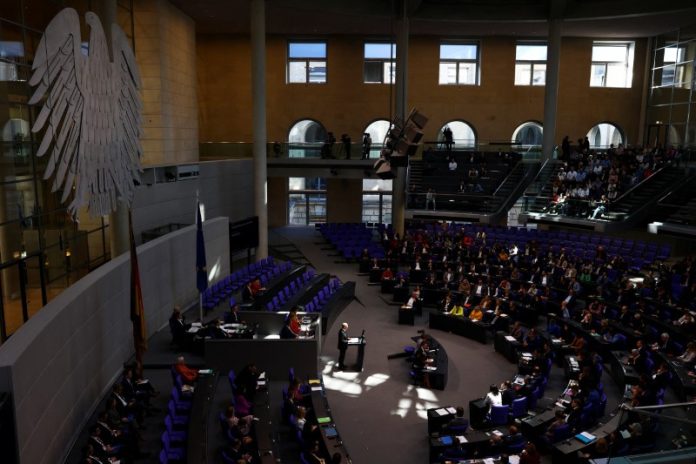Germany’s liberal FDP party is taking an increasingly confrontational stance towards the economic policies of the tripartite coalition government in which it is the junior partner, emphasising that it has more in common with the conservative opposition, Euractiv reports.
The FDP (Renew) is the junior partner in the coalition between the Social Democrats (SPD/S&D) and the Greens and is increasingly dissatisfied with the government’s policies, especially in the field of the economy, as recently stated by FDP Secretary General Bijan Djir-Sarai, who on Monday criticised the Greens’ Economy Minister Robert Habeck. Bijan Djir-Sarai stressed:
If the Minister for Economic Affairs is of the opinion […] we are now […] running up debts to try to then artificially boost the economy through subsidies, then in my view that is clearly the wrong way to go.
Respecting the constitutional debt brake, according to which the government cannot take on new debt exceeding 0.35 per cent of nominal GDP per year, was one of the FDP’s most high-profile election promises and represents a red line for the party.
Already this weekend, Bijan Djir-Sarai said he would prefer to work with the conservative opposition CDU party because they would have more overlap in various policy areas.
In an interview with Bild am Sonntag, Bijan Djir-Sarai said he was “firmly convinced that a coalition of the CDU, the CSU and the FDP will not only be able to analyse the country’s problems together, but also find solutions”. Djir-Sarai warned his coalition partners:
If we have no economic foundation in Germany, we will fail in all policy areas. In the coming weeks, it will be extremely important for me to see what conclusions the other coalition partners draw from this.
Party leader and Finance Minister Christian Lindner told ZDF television on 11 February that “the FDP suffers in particular from being part of a very unpopular government”.
The three-party government has been sinking in the polls for months, with the FDP particularly unpopular, with a 4 per cent rating, compared to 11.4 per cent in the election that secured it a seat in the coalition.
The upcoming European elections in June could be a crucial test for the ruling coalition, and an unsatisfactory result could prompt the Liberals to leave the government.
